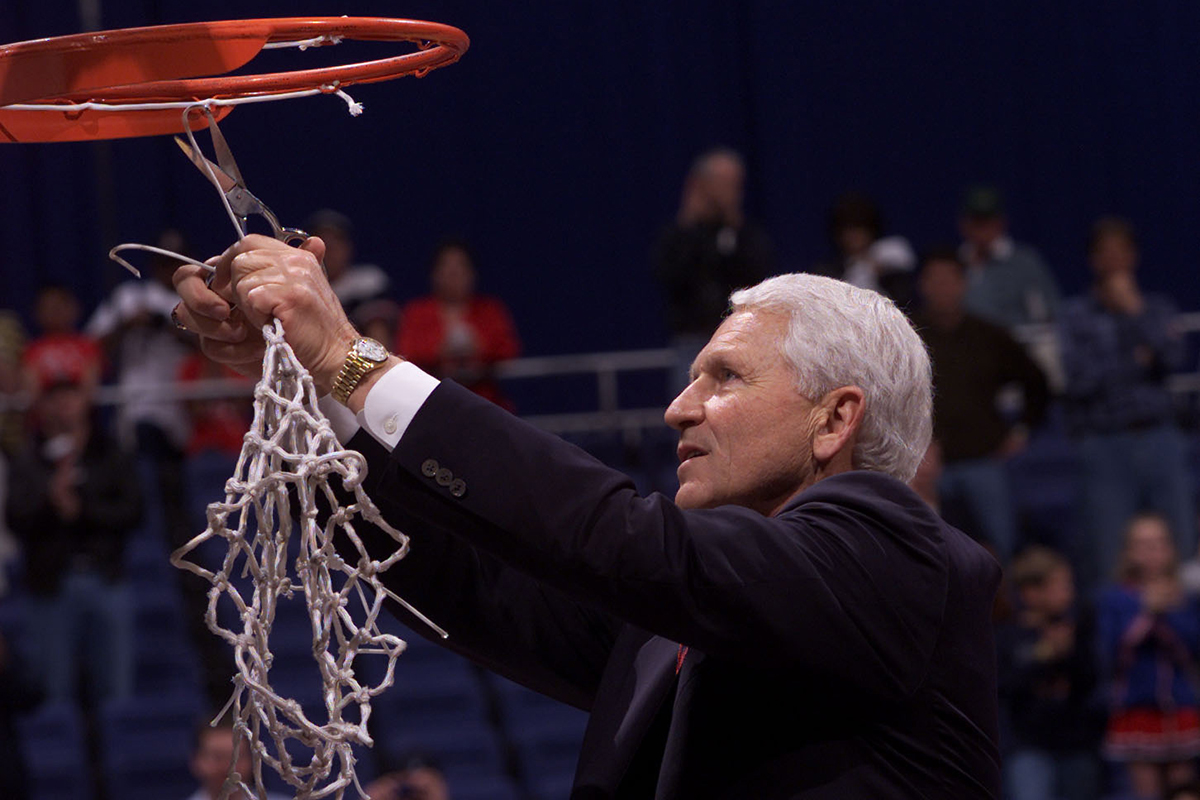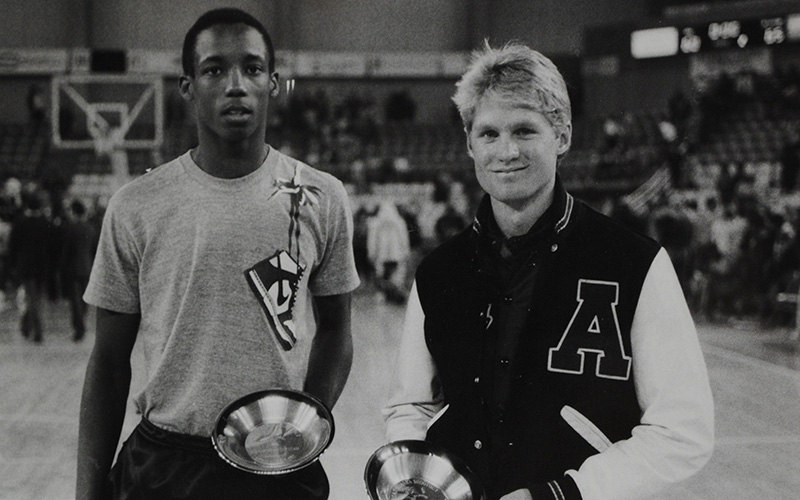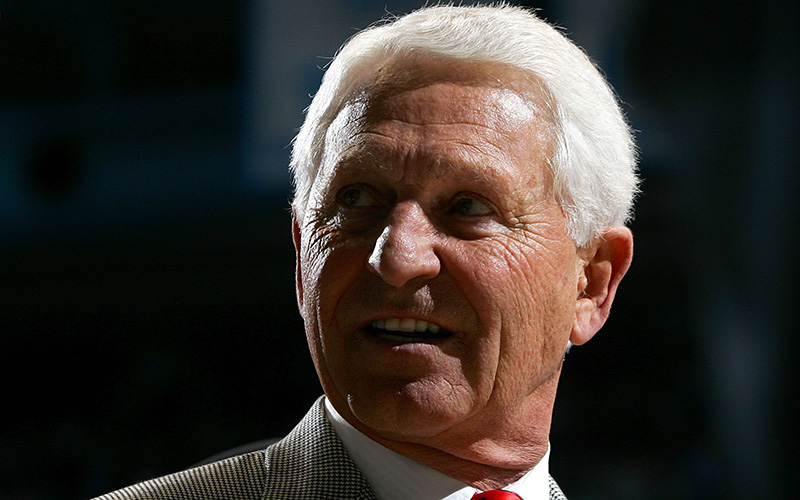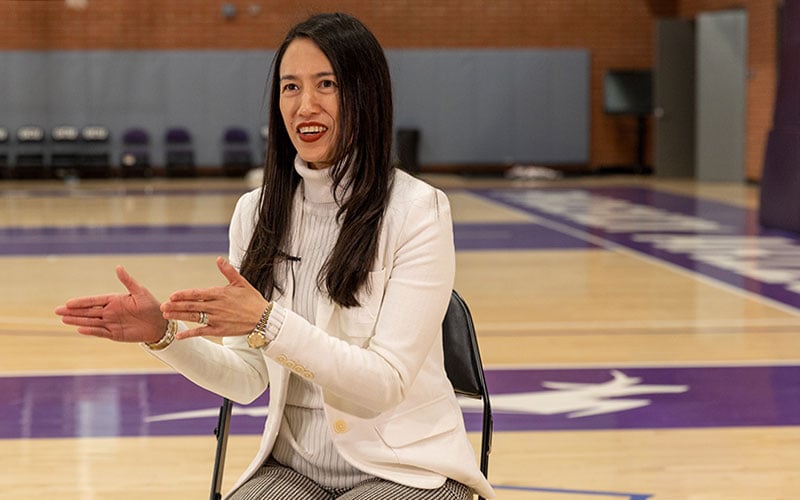Kerr moved on to the NBA and had a 15-year career, where he won three championships with the Chicago Bulls and two with the San Antonio Spurs. He remained in the NBA as a general manager for the Phoenix Suns and was named coach of the Warriors in 2014.
Fraser also has made an impact coaching. He worked as a graduate assistant coach under Olson from 1987-90, was a member of the Indiana Pacers’ staff in 1994-95 and served as an assistant coach at the University of Missouri from 1999-2000.
Fraser’s close relationship with Kerr led him to work as Steve Nash’s personal shooting coach from 2010-13. After that, he became an assistant on Kerr’s Golden State staff, where his duties include working with the offensive star Steph Curry on his shooting.
After the departures of Kerr and Fraser, Arizona continued its winning ways under Olson, building to the ultra-special 1997 season.
“We were part of that foundation and that foundation really culminated in ‘97,” Fraser said.
That was the season where the improbable became reality. The Wildcats won their first and only national championship by defeating Kansas, North Carolina and, finally, Kentucky in the national championship game.
Arizona is the only team in NCAA men’s basketball history to defeat three No. 1 seeds in the tournament. As the final buzzer sounded and players celebrated, Pastner thought about how the title cemented Olson’s legacy.
“I was very fortunate to be with UA for a long time, both as a player and then a staff member,” Pastner said. “Lute was an incredible teacher of the game. He was an incredible educator. He’s one of the best to ever do it.”
Pastner’s playing career ended after college, but he wasn’t done with basketball. Like many of his former teammates, Pastner pursued a career that grew Olson’s family tree in coaching. He landed head positions at the University of Memphis in 2009 and at Georgia Tech in 2016. Like Olson, Pastner took two programs to the NCAA tournament.
Olson died in 2020, but Pastner continues to feel his presence on the bench.
“I’ve got to be myself, I’ve got to run my own program. But every decision I make, in the back of my mind, I’m thinking what would Coach Olson do,” Pastner said.
One of Pastner’s teammates was Jason Terry, a 1998 Pac-10 Player of the Year and 2011 NBA champion with the Dallas Mavericks who was thankful for the bond that he formed with Olson.
“I’ll just never forget being miles away from my home in Seattle, not having any family there and being able to go to Coach’s home or his office and his door was always open,” Terry said. “The relationship between player and coach, mentor, mentee, teacher and student … you can’t put a price tag on it.”
The culture that Olson created survived after his health-related departure from the school before the 2008-09 season.
Successive coaches, led by Tommy Lloyd, maintained the program’s elite status. Lloyd, who led the Wildcats to the Sweet 16 in his first season, described what it is like to uphold that legacy of winning.
“The impact that he had on Tucson was tremendous,” Lloyd said. “I’m fortunate to follow in his footsteps.”
Before the beginning of the 2021-22 season, the university held a memorial for Olson, their winningest coach, at McKale Center, the building where fans and players experienced his larger-than-life presence. He was also immortalized with a life-size statue outside McKale Center in which he is holding the 1997 NCAA men’s basketball championship trophy.
Olson compiled a 587-190 record during his 24 years with the Wildcats. He turned the program from nothing to one of the best in the country.
“No coach can say that he literally built not only a basketball program from ground zero, but a university,” Pastner said. “Lute Olson single handedly built a program, a school and the city, all through basketball.”




